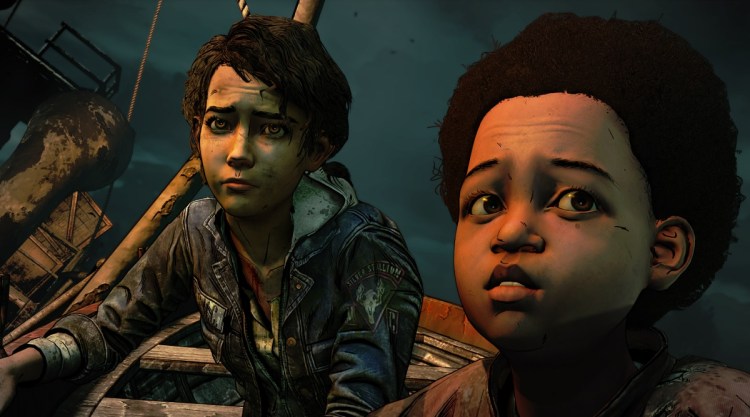Skybound Games’ crowning achievement, ironically enough, might be bringing back a game from the dead. The company recent published the fourth and final episode of Telltale’s The Walking Dead: The Final Season on the PC in the Epic Games Store, as well as on the Nintendo Switch, PlayStation 4, and Xbox One.
The game’s fate was up in the air, as Telltale shocked the world by shutting down last fall and throwing hundreds of developers out of work. The game, which started as the stunningly harsh tale in The Walking Dead: Season One in 2012, wasn’t finished.
So Robert Kirkman’s Skybound Entertainment acquired the title from Telltale and pledged to finish the game. I talked with Ian Howe, CEO of Skybound Games, about that at the PAX East fan convention in Boston last week. It took about two months of legal limbo before Skybound could get the team on board and finish the title, and then another few months to finish the final two episodes in the 20-episode series.
Here’s an edited transcript of our interview.
June 5th: The AI Audit in NYC
Join us next week in NYC to engage with top executive leaders, delving into strategies for auditing AI models to ensure fairness, optimal performance, and ethical compliance across diverse organizations. Secure your attendance for this exclusive invite-only event.
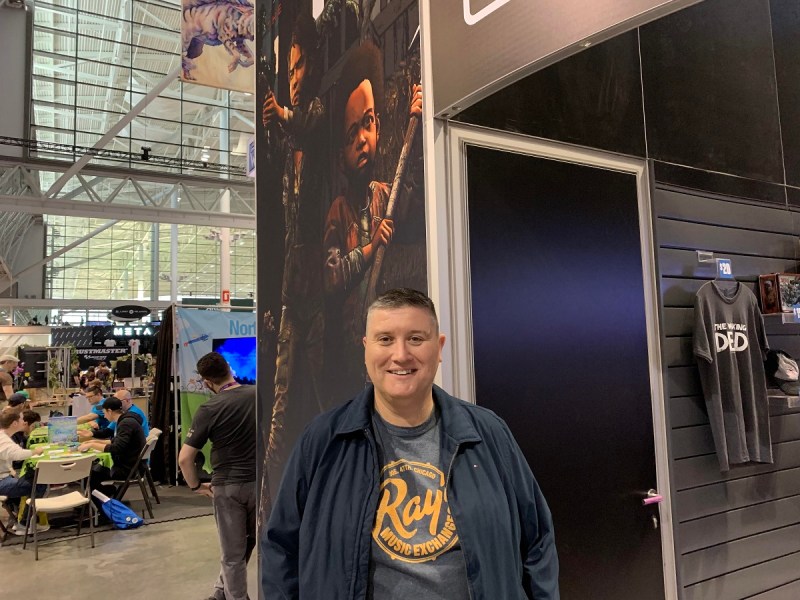
Above: Ian Howe, the CEO of Skybound Games, at PAX East 2019.
GamesBeat: You must be happy about getting the last Walking Dead episode out.
Ian Howe: Definitely a sense of relief that we managed to get that online. It’s been a great project to work on. The development team has been incredible, just completely determined to get this story finished. We did a small part of making that happen, but ultimately the credit should go to those guys for coming straight back after a two-month break, when they didn’t know what was happening. To come back in and deliver the final episodes the way they did—I don’t think we could have reasonably asked for more than they delivered.
I believe we were down through clearing legal issues and things for exactly two months. Then our release date was two months and two weeks past the original release date. It would have been exactly the day, but we chose to move the date back a couple of weeks for various reasons. We really lost no time at all, other than the time the team wasn’t able to work. For them to come back straightaway, that’s a testament to their abilities. I had nothing to do with that. [Laughs]
GamesBeat: After the two months, how much work did they have to do?
Howe: We got them back to work in November. They’ve been working for the last three or four months on finishing episode four. Episode three was probably 80 or 90 percent done. It was at a ratings build. It wasn’t fully finished from a visual standpoint, but the narrative and voice work were done. Episode four was in preproduction. It had nearly all the work left to do. They came back and blasted through episode four and came up with something really special.
GamesBeat: How much of the team came back? I assume you didn’t have everybody.
Howe: I don’t know what the original team size was, but we cast a pretty wide net. There were some very specific things that needed to be done. With development it’s not everybody on all the time for the whole project. People were rolling on and rolling off. But we brought back more than 40 people. That shifted and changed, because some people took other roles. Then we cast the net wider. The whole team that finished the game were Telltale people, and 95 percent were the former Walking Dead team.
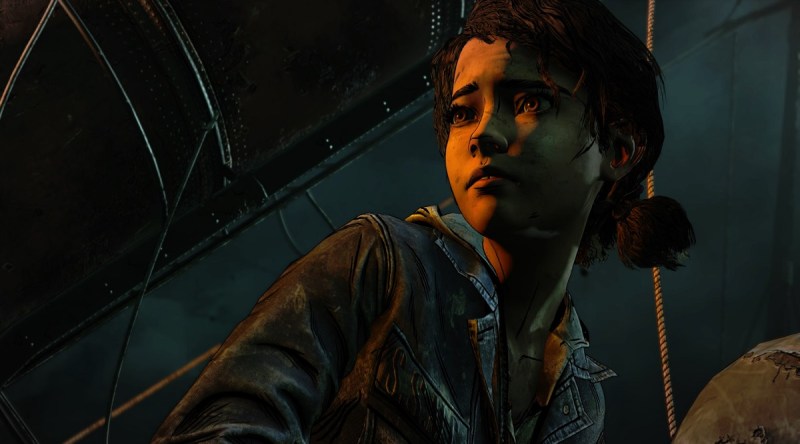
Above: Clementine is still looking for shelter.
GamesBeat: What kind of reactions have you seen to the episode?
Howe: The feedback has been fantastic. Obviously the first thing you look toward with a game like this, where it’s so known and so anticipated, is the fan reaction, more so than the critical reception. That’s probably more important at this stage. I went into Tuesday’s launch kind of feeling like whatever direction we decided on was not going to please everyone. But honestly I don’t think I could have anticipated such a positive response. It’s been almost overwhelmingly positive. Even people who have said that it’s not the ending they would have gone with, they still really enjoyed the episode. It’s been great to hear.
GamesBeat: I wonder if all the choices are coming out in similar ways.
Howe: Time will tell as far as choices. We’ll have a look at that data when we have a bigger sample size. Generally everyone has a different path, but they end up in a similar place at the end.
GamesBeat: How are you feeling about finishing this? I guess there’d be some emotional attachment to it on the Skybound side.
Howe: Oh, undoubtedly. People within the Skybound team have been involved in this project since almost day one. There’s a lot of people on the Telltale side who’ve been involved for a long time. I think we all felt that these last two episodes not happening—that would have been tough to allow to happen. We felt that not only was it the right thing to do, but it was a good thing to do, to tell that story and bring those people back as well, allow them to come back and complete the story. There was a lot of emotion involved in it.
I know from Kent Mudle, who’s the creative director—he and I have spoken about that a lot, about the personal attachment they’ve developed for the characters. We all have that. We all talk about it in the same terms as the fans talk about it. How is it going to end? Obviously, we knew, but how is that ending going to be received? Was it the right thing to do? But the good thing was that the original team, who created this story arc and narrative in the first place, got to see it through. It wasn’t anybody else that came in and made the final decisions. All the original people were involved.
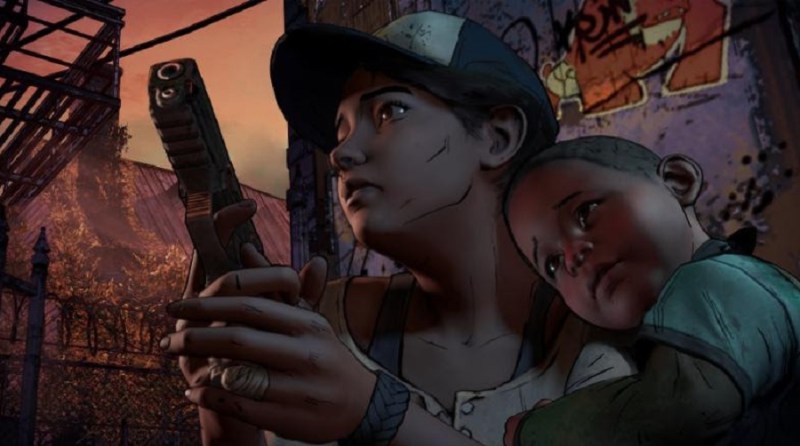
Above: Clementine is a gun-wielding character in season three of Telltale’s The Walking Dead.
GamesBeat: That coincided with Skybound doing more games now, picking up more projects for publishing.
Howe: We created Skybound Games as an entity at the end of 2017. We published two games in 2018, which were Slime Rancher and The Long Dark. We did physical distribution for those. This came along probably sooner than we were ready to handle a project of that size, but everybody—not just the Skybound Games team, which was very small at the time, but everybody on the periphery of Skybound really stepped up and played their part in making this happen. It was a multi-faceted attack on all these different areas that needed to be done.
We’ve come out the other side of it now with a game that’s been critically well-received and a team that’s bonded and battle-hardened from a big project. We have a lot in the works that we’ll be talking about down the line. You can definitely expect to see a lot more games coming from Skybound Games.
GamesBeat: What would you say is the charter for Skybound Games?
Howe: We had this incredible opportunity with the IP library that Skybound represents. It’s not just Robert Kirkman’s creations. We represent many talented creators. It’s really the ability to explore their work and see how that might look in a video game context. Sometimes that’s not going to make sense, and if that’s the case, we won’t do it. But when it does make sense, and we find concepts that we love and that the creator can get behind, then that’s something we think is going to be really interesting to explore.
That goes way beyond just Walking Dead. We think there are many IP in our stable where incredible characters and universes have been created that are just ripe to be explored even more in different media. That really is what we attempt to do at Skybound. When it makes sense, we’ll do that. That won’t be the only thing we do. We’ll be publishing unique gaming IP as well. But I think you can see us exploring Skybound’s catalog pretty heavily.
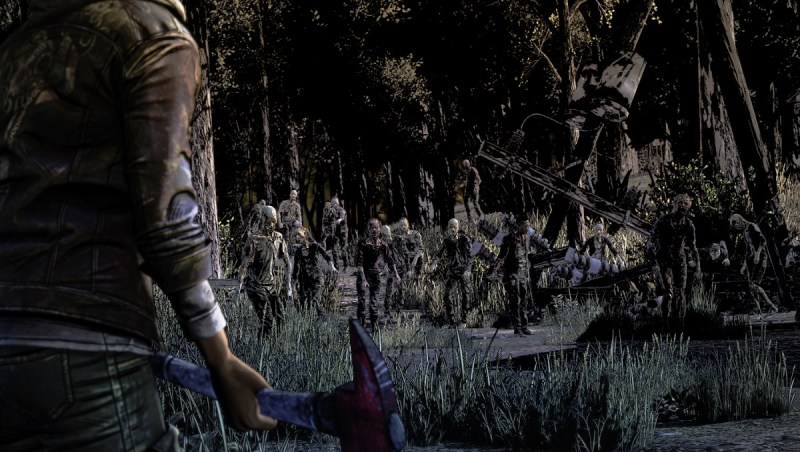
Above: This doesn’t look good.
GamesBeat: Is some of the thinking also that games just make more money now?
Howe: The conversation came out of a long-standing relationship between myself and some of the leadership at Skybound. In particular Dan Murray, who I think you know. We’d been talking for a while, even when I was running 505, about Skybound’s ambitions in the gaming space. I took the decision in 2017 to walk away from 505, and from there, a few conversations took place. We created a new gaming company.
Again, when the Telltale thing happened, that was kind of in its infancy. We were still exploring what that might look like. To some degree, we’re still in that phase. I think the goal over the next three to five years is to stand up Skybound as a major video game publisher. But the conversation was never about whether games make more money than comics. It never came from that position.
There’s clearly a heavy crossover between comic fans and game fans. At the heart of everything we do at Skybound, it’s really about that. We look around here at PAX and this is why the game industry exists. This is why the comic book industry exists. It’s because of the passion of people who read and play the things we make. Without this, there is no industry. It’s really about figuring out — I say this as a gamer as much as anything – what’s going to be cool to play. There are a million things you could do with Walking Dead, for example, but not all of them are going to make sense. Our job is to figure out what makes sense and then find a way to execute that in a way that delivers something special.
GamesBeat: Can you talk about what happened with the Overkill project? Did that not meet your quality standards?
Howe: It’s difficult for me to talk about that because I’m not involved in it. I deliberately kept—I was involved in that project from the other side, from the 505 side, so when I came over, I kind of deliberately let the people who’d been managing it before keep managing it. I stayed out of that one. I can’t really comment on it. I don’t know a lot about it, truth be told. But yes, that would appear to be the case.
I was involved in some of the initial decisions that were made as far as the choice of technology and things like that. I think a lot of it goes back to some of those decisions. When a game sets out on a bad course, it’s hard to correct. That’s probably what we’re seeing here.
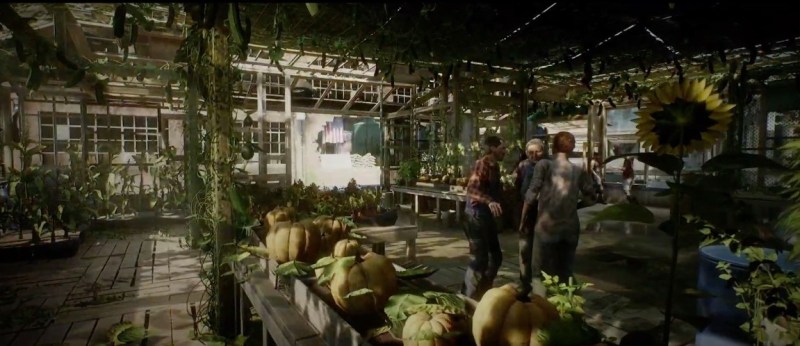
Above: Overkill’s Walking Dead.
GamesBeat: What do you learn from that and take into the future?
Howe: One of the obvious things is to—as a license partner, we’ve always been more hands-on than most, in terms of trying to make sure that our IP is represented properly, as best it can be. It’s about making sure that we’re as involved as possible. From the gaming side, particularly, now we’re going to be far more hands-on. Anyone who’s worked in games long enough understands how these things come to be. There are definitely things you can do to try to avoid them and give yourself the best chance of not ending up in that position. But even with the best decisions made, sometimes you end up there.
I just came off a panel about this very topic, about adapting beloved IP into games. It’s difficult to do. Making games is hard, but making games with the level of expectation that’s above just making a good game, that makes it even more challenging. Sometimes that can be stifling or controlling. Sometimes it can be intimidating. It adds another significant hurdle to overcome.
GamesBeat: What looks good for you on the horizon?
Howe: We have a bunch of things we’re working on this year. The next thing out the gate is a game called Not My Car, which is from a small team called Not My Car Studios. It’s essentially PUBG or Fortnite in cars. It’s multiplayer battle royale, last man standing. Back in the day I worked on Vigilante 8 and Interstate 76. In some ways it’s a throwback to that style of game, or Destruction Derby, which was a killer app on the PSX. It’s going to be on Steam Early Access on April 5. It’s a free-to-play game.
What this team has done with incredibly limited resources is amazing. They came to me with the game almost finished. They just wanted a partner to help launch the game. We’ve invested in the launch, but they were able to take the game to a nearly complete state without any publisher’s help. That’s a testament to their efforts. A lot of it was made on sweat equity.

Above: Skull Girls
I’ve worked with the team before and I know they’re talented people. I met them a while back and we started chatting about it. I played the game and loved it. It was an easy decision to try to get involved with them, and I hope what we’re doing now is giving them a platform to launch something very successful. It’s a great, fun game, just complete chaos, especially when you get 30 or 40 in a relatively small area. It’s a great game to watch as well as play, too, which for is a good indicator of fun.
We have Skullgirls coming out on Nintendo Switch and Xbox One. We have Gang Beasts coming to physical retail. We’re doing the physical distribution on that one along with Boneloaf and Double Fine. Boneloaf is a small U.K. studio, but they’ve made something very special. One look at our booth will tell you that. We have a massive line to play it. It’s a game that’s already out there, but people still want to jump in and play it. Most of them have never played it before, so I’m glad we’re here with it. That’ll come to physical retail in the summer.
We have a big partnership with Beamdog. We’re bringing back some beloved RPGs — Neverwinter Nights, Baldur’s Gate, Planescape: Torment, and Icewind Dale. That rounds out our slate for the year.
GamesBeat: How did those properties become available?
Howe: They’ve been working in this space for a while. Some of the original developers of these games are involved in this process. They went through the difficult job of overcoming all the obstacles as far as who owned what, because it was very complex, but they were able to pull all that together. Again, we’re coming on board really to support their launches and do their physical distribution.
As we build our own games, one of the things I’m trying to do is help development teams out there who maybe don’t need a full publishing suite, who don’t need a controlling influence. They just need help and support. That’s what we’re trying to do. Hopefully we’ll be a good partner to help their games succeed and reach a bigger audience.

Above: Clementine in the original The Walking Dead.
GamesBeat: It’s a combination of big and small games for you right now.
Howe: I tend to look for—I’m genre-agnostic. When game agents ask me what I’m looking for I drive them mad, because I just say, “Magic.” That’s hard to quantify. Sometimes it’s not immediately obvious, but normally it is. Within a few minutes of playing a game you know whether it’s got something special or not. That could be it’s doing something different, or it’s doing some better, or it’s doing something new, but it can come in many forms.
That secret ingredient can come from many places. That’s what I look for. It’s hard to find. But every so often something comes along and piques your interest. You can’t get it out of your head, whether it’s a song or a lyric or a poem. It’s stuck in your head. That’s what games do for me. It’s normally an indicator that I’ve found something I want to pursue.
GamesBeat: Is Robert Kirkman involved very closely in any way?
Howe: Not directly. He’s a gamer, so he has his opinions, for sure. But no, he’s a writer. Every minute he spends reviewing video games he’s not writing. That’s his passion. I would never drag him away from that. I don’t think I’d ever be able to, even if I wanted to. That’s not going to happen. I’m just trying to imagine a conversation where I asked Robert, “Hey, review this build.” It would be an interesting conversation. [laughs] Actually, he probably would, thinking about it, and everyone else would say, “Don’t! You have other things to do!” But he would probably enjoy it.
GamesBeat: How many people make up Skybound Games now?
Howe: Directly, I think 11 now? I have a few people who are there kind of halfway. Skybound has a huge support network. A lot of the more mundane back-office functions I lean on the rest of Skybound for, and then there are PR people who represent Skybound Entertainment. There’s been a lot of support from the broader Skybound team, which I’m very grateful for. It would have been impossible without that. I have to recognize that. Skybound has been phenomenal to start a business and get it stood up. I couldn’t have asked for a better partner. So far, so good.

Above: The Walking Dead creator Robert Kirkman of Skybound
GamesBeat: Do you have an outlook on where the game industry is right now? I see a lot of things that puzzle me right now. EA and Activision both laid off a lot of people, while at the same time the industry is at a record size, expanding on all fronts. Some companies still have a hard time of it.
Howe: Gaming is such a broad church now. If you go back 10 or 15 years ago it was a relatively narrow category. Now it’s incredibly broad, with companies of all shapes and sizes, with different motivations and different objectives. It’s so hard to encapsulate it in a single view. For me, I find it endlessly interesting. I love it because it moves so quickly. You just have to embrace that rate of change. The more you do that, the more fun it becomes. That’s how I’ve seen it.
I think in any industry there’s always going to be expansion and contraction and consolidation. The game industry isn’t immune to that. I’ve been part of that. I’ve been laid off from games companies. It’s not fun. It’s really tough. From a personal point of view, what the big guys do—at this point, compared to where we are, it’s kind of irrelevant to me. It doesn’t impact what we do on a day to day basis. They’re building games on such a huge scale, while we’re years away from even contemplating that.
What interests me more personally is the independent development scene, and even the bedroom development scene. Coming here and seeing games made by one or two people, seeing what that can become, that’s what really keeps me interested in this industry. The bigger economics of it, I’m comfortable dealing with them, but it’s not what keeps me interested.
